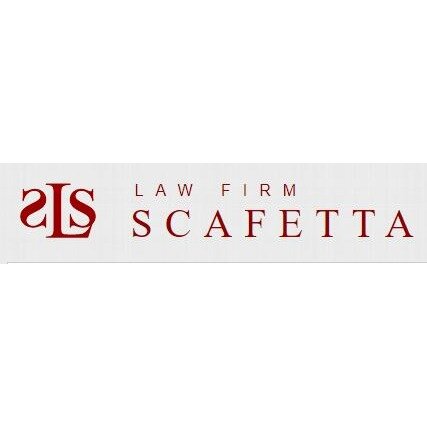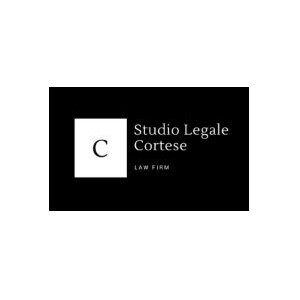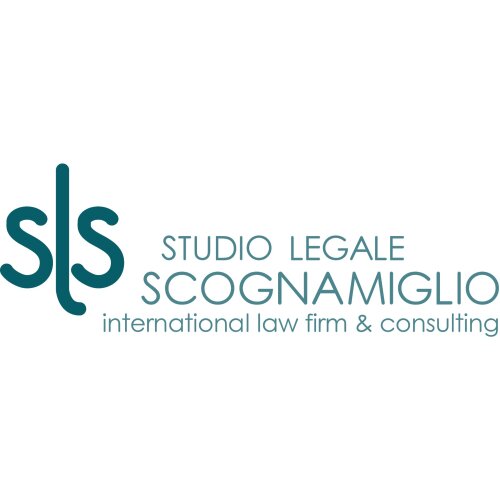Best Real Estate Lawyers in Naples
Share your needs with us, get contacted by law firms.
Free. Takes 2 min.
Free Guide to Hiring a Real Estate Lawyer
List of the best lawyers in Naples, Italy
Italy Real Estate Legal Articles
Browse our 2 legal articles about Real Estate in Italy written by expert lawyers.
- Italy CIN Rules 2025: Compliance for Airbnb Rental Hosts
- Short-term rentals in Italy (including Airbnb-style lets) must now have a National Identification Code (Codice Identificativo Nazionale - CIN) issued by the Ministry of Tourism. Existing hosts have a strict deadline (usually 60 days from the opening of the CIN portal) to obtain their CIN or risk fines of up... Read more →
- Buying Property in Italy as a Non-EU Citizen: Reciprocity
- Most foreigners can legally buy real estate in Italy, but non-EU buyers are subject to the Reciprocity Principle or must hold a valid Italian residence permit. US, UK, Canadian and Australian citizens generally benefit from reciprocity for residential property, but rules are nuanced and must always be checked against the... Read more →
About Real Estate Law in Naples, Italy
Real Estate in Naples, Italy, presents a mosaic of historic and modern dynamics, making it a fascinating field. As the third-largest city in the country, Naples offers diverse property opportunities, from picturesque apartments in ancient buildings to modern commercial spaces. The city is rich in culture and history, influencing the architectural landscape and the real estate market. However, buying, selling, or leasing property in Naples involves navigating a complex legal system characterized by unique local regulations and traditions.
Why You May Need a Lawyer
Navigating the real estate market in Naples can be particularly challenging due to complex regulations and legal requirements. A lawyer specializing in real estate can be crucial in the following situations:
- Purchasing or selling a property: Ensuring all contractual and legal obligations are correctly handled.
- Resolving property disputes: Addressing issues such as boundary disagreements or breaches of contract.
- Understanding zoning laws: Ensuring property usage complies with local regulations.
- Negotiating lease agreements: Protecting interests whether as a landlord or tenant.
- Handling inheritance matters: Managing real estate inheritance under Italian succession laws.
- Assisting in mortgage and financing matters: Navigating terms and ensuring favorable conditions.
Local Laws Overview
Real estate laws in Naples are governed by both national Italian regulations and local municipal rules. Key aspects include:
- Zoning and land use laws: These dictate how land and properties can be used, which is crucial for planning development projects.
- Transfer of property: Legal standards must be followed to ensure the title is properly transferred.
- Cultural heritage laws: Many properties in Naples are subject to protection and conservation laws, requiring special permits for alterations.
- Property tax obligations: Understanding the local taxation system is vital for budgeting and financial planning.
- Tenancy laws: These laws define the rights and responsibilities of landlords and tenants in lease agreements.
Frequently Asked Questions
What is the process for purchasing property in Naples?
The process typically involves finding a property, making an offer, conducting due diligence, signing preliminary and final contracts, and completing through a notary. Legal guidance is recommended to navigate this complex process.
Are there restrictions on foreign nationals buying property in Naples?
Italy generally allows foreign nationals to purchase property, although certain countries require reciprocity conditions. Legal advice can clarify specific cases.
What taxes are involved in buying property in Naples?
Taxes include registration tax, cadastral tax, and mortgage tax. The tax rate can vary depending on whether the property is a primary residence or a second home.
How are inheritance issues handled for real estate in Naples?
Italian succession law often governs these cases, and it necessitates an understanding of the complex rules that determine how property is distributed among heirs.
What should I know about rental agreements in Naples?
Rental agreements must comply with Italian tenancy laws, and it's essential to understand lease durations, rights, and termination conditions to protect your interests.
Can I make modifications to a historic property?
Modifications to historic properties are heavily regulated and often require permits from heritage authorities to preserve cultural heritage.
What is the role of a notary in real estate transactions?
A notary in Italy is a public official who ensures the legality of real estate transactions. They prepare the deed of sale and ensure it complies with all legal requirements.
How do zoning laws affect property development in Naples?
Zoning laws determine the permissible uses of a property and can impact development plans. Understanding these laws is essential before purchasing or developing property.
What commonly causes property disputes in Naples?
Disputes frequently arise from boundary issues, defects in property, non-payment, nuisance claims, or unmet contractual obligations. Legal counsel can assist in resolving these matters efficiently.
How do I choose a reliable real estate lawyer in Naples?
Consider factors such as the lawyer's specialization, experience, reputation, language proficiency, and recommendations or reviews from previous clients.
Additional Resources
Below are some resources and organizations that may be helpful for individuals seeking legal advice in real estate:
- Agenzia delle Entrate: Italy's Revenue Agency for taxation and cadastral information.
- Chamber of Commerce of Naples: Provides resources and information on local business and property laws.
- Association of Italian Notaries: Offers insights on the role of notaries in property transactions.
- Local real estate agencies and consultants: Can provide market insights and practical information.
Next Steps
If you're considering any real estate transaction or facing a legal issue related to property in Naples, it's advisable to consult with a qualified real estate lawyer. Follow these steps:
- Research potential lawyers with expertise in real estate law and review their credentials and client feedback.
- Organize any relevant documents and facts related to your case or query.
- Schedule an initial consultation to discuss your situation and legal options.
- Ensure clear communication regarding fees and ongoing costs before proceeding.
By following these steps, you can ensure that you receive the appropriate legal guidance and support for your real estate needs in Naples, Italy.
Lawzana helps you find the best lawyers and law firms in Naples through a curated and pre-screened list of qualified legal professionals. Our platform offers rankings and detailed profiles of attorneys and law firms, allowing you to compare based on practice areas, including Real Estate, experience, and client feedback.
Each profile includes a description of the firm's areas of practice, client reviews, team members and partners, year of establishment, spoken languages, office locations, contact information, social media presence, and any published articles or resources. Most firms on our platform speak English and are experienced in both local and international legal matters.
Get a quote from top-rated law firms in Naples, Italy — quickly, securely, and without unnecessary hassle.
Disclaimer:
The information provided on this page is for general informational purposes only and does not constitute legal advice. While we strive to ensure the accuracy and relevance of the content, legal information may change over time, and interpretations of the law can vary. You should always consult with a qualified legal professional for advice specific to your situation.
We disclaim all liability for actions taken or not taken based on the content of this page. If you believe any information is incorrect or outdated, please contact us, and we will review and update it where appropriate.
Browse real estate law firms by service in Naples, Italy
Naples, Italy Attorneys in related practice areas.














